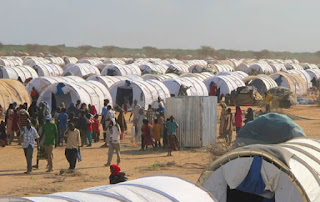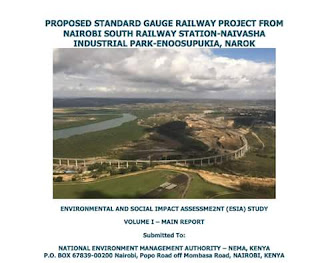Refugees and The Environment
It is worth noting that when there is a high concentration of refugees occurring rapidly a number of environmental problems are experienced. In the absence of mitigating measures, physical deterioration of the surrounding environment soon takes place thus generating a number of impacts on both the refugees and the local population. Some of the environmental problems associated with refugees include:
Natural resource deterioration.
Degradation of renewable resources such as forests, soils, water etc dominates the environmental problems associated with refugees for example contamination of surface and ground water can occur when sanitary measures are inadequate or through improper application of agro-chemicals. In the case of settlement schemes, poor land use methods can also increase the degradation of land.
Irreversible impacts of natural resources particularly serious impacts on areas of high value that may be containing alot of biodiversity. Some of these areas may be of global importance and thus damaging such areas can be irreversible and may require special efforts to mitigate or prevent such impacts.
Impacts on health.
Impoverishment of surrounding natural resources undermines the long term nutritional base and brings about further adverse impacts on health of an already weakened group for example shortage of fuelwood may result in undercooking of food.
A very high percentage of adverse health impacts are also associated with feacal and chemical contamination of drinking water and through disease transmission in the overcrowded refugee camps.
Dust and smoke created by the burning of low quality fuelwood increases the incidences of respiratory ailments.
Most of these problems tend to largely affect the very old and young people.
Economic impacts.
The influx of refugees is felt in the local markets. While sections of the local population may benefit, the local poor are usually affected adversely as refugee demands force up the price of goods and services such as fuel.
Deforestation, land degradation and water resource depletion all carry with them an economic cost for the local population. Also, availability of fuel, housing materials, medicine derived from the nearby forests are reduced thus the consequences of environmental degradation in the vicinity of refugee camps may be felt at considerable distances from the camps. Soil erosion is another problem experienced in refugee camps due to the high number of people being concentrated in a very small area.



Comments
Post a Comment